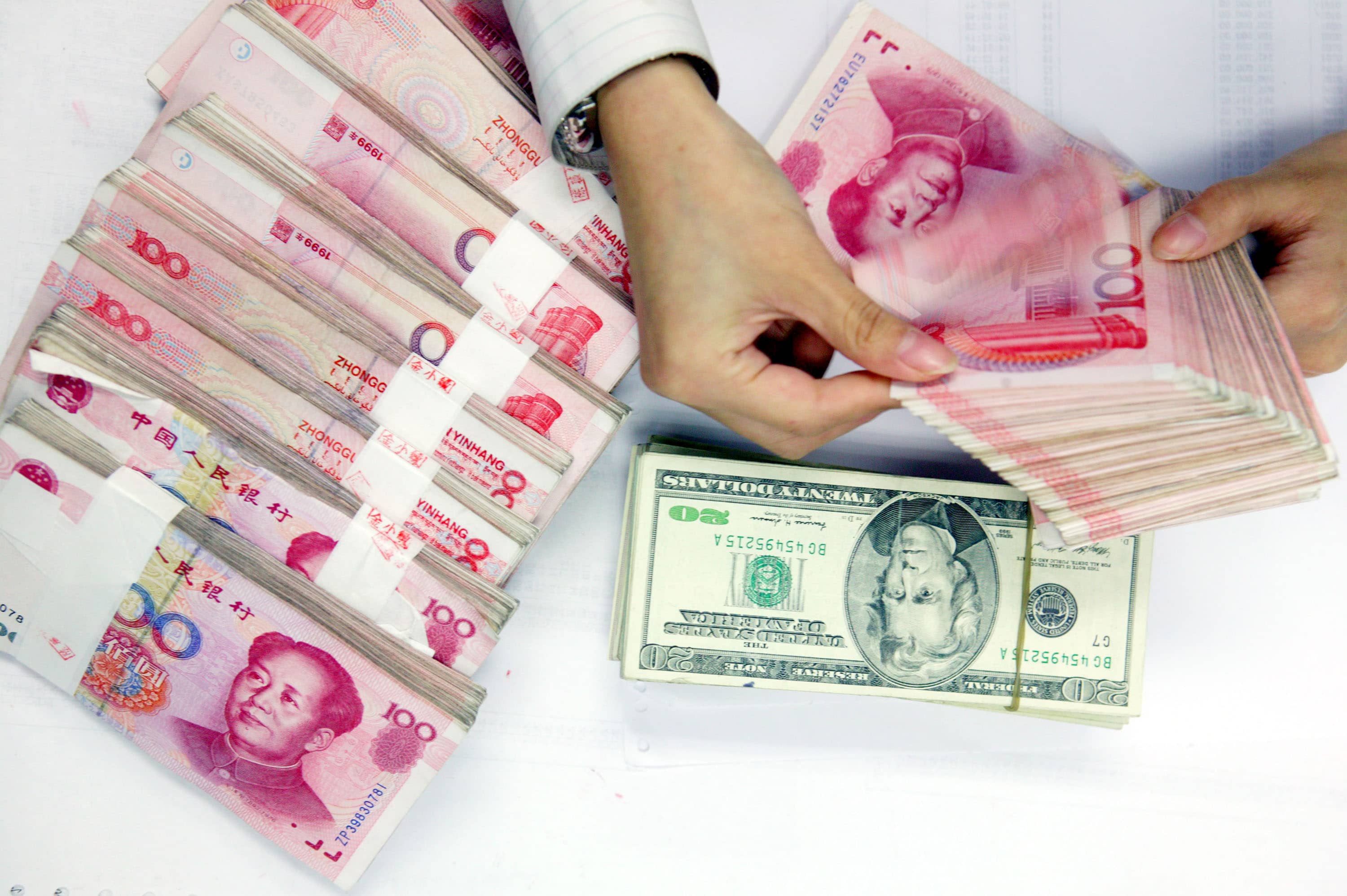
BEIJING — When it comes to the investment outlook, one Chinese economist predicts once-a-century opportunities will emerge from a "struggle for supremacy" between the U.S. and China.
This game-changing window comes from upheaval on both sides, said Liu Yuhui, director of a finance research department at a government think tank, the Chinese Academy of Social Sciences.
China is set on becoming a great nation, he said, while the U.S. has embarked on a dollar-printing policy since the coronavirus pandemic that has changed the financial balance. To Liu, this U.S. policy reflects an irreversible, significant change that has direct consequences for China's macroeconomic policy goal of controlling inflation domestically.
That's according to a CNBC translation of his Mandarin-language speech, titled "The bipolar world under the U.S.-dollar super-expansion cycle — The Chinese capital market's 'cognitive revolution.'"
Liu, also chief economist at Tianfeng Securities, was speaking Friday at asset manager ChinaAMC's investment strategy conference. Founded in 1998, ChinaAMC is one of the country's largest mutual fund managers and has 1.54 trillion yuan ($240.63 billion) in assets under management.
In Liu's view, the U.S. is implementing the concept of "modern monetary theory“ (MMT), which holds governments with their own strong currency can print money to support the domestic economy without worrying too much about budget deficits.
One of the most well-known proponents of modern monetary theory is Stephanie Kelton, formerly chief economist for Democrats on the U.S. Senate Budget Committee and a senior economic advisor to Bernie Sanders′ 2016 presidential campaign.
The U.S., under the Trump administration and subsequently the Biden administration, has kept interest rates low and released trillions of dollars into the economy to support growth in the wake of the pandemic.
The stimulus program has drawn criticism for its scale. At conglomerate Berkshire Hathaway's annual meeting in May, U.S. billionaire Warren Buffett's longtime business partner Charlie Munger said modern monetary theory might be "more feasible than everybody thought. But I do know that if you just keep doing it without any limit it will end in disaster."
Meanwhile in China, the ruling Chinese Communist Party just celebrated its 100th anniversary on July 1, when President Xi Jinping called again for the "great rejuvenation" of China.
To Liu, the government's stance means policy will focus on ensuring national security and cutting carbon emissions. He emphasized political correctness will be even more critical for investment in light of developments like Alibaba founder Jack Ma's controversial speech last fall and the subsequent suspension of Ant Group's IPO.
Mainland Chinese stocks with the highest probability of large gains will be those in the new energy, seed, optics and semiconductor industries, among others, Liu said.
As for digital currencies, on which Chinese authorities have intensified their crackdown this year, Liu cast them in geopolitical terms as well.
"In my view," he said, "it's just the U.S.' way to tempt Chinese capital."
"between" - Google News
July 22, 2021 at 07:00AM
https://ift.tt/3hXCmnc
Once-a-century opportunities will emerge from a 'struggle for supremacy' between the U.S. and China, economist says - CNBC
"between" - Google News
https://ift.tt/2WkNqP8
https://ift.tt/2WkjZfX
Bagikan Berita Ini















0 Response to "Once-a-century opportunities will emerge from a 'struggle for supremacy' between the U.S. and China, economist says - CNBC"
Post a Comment